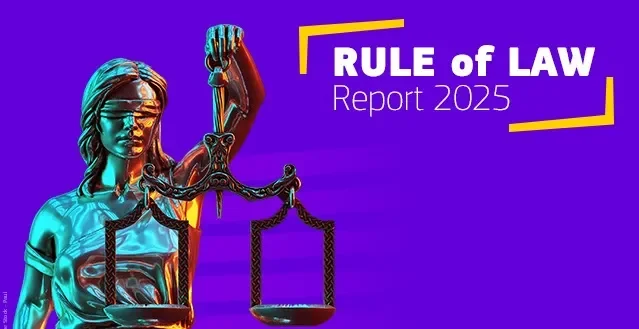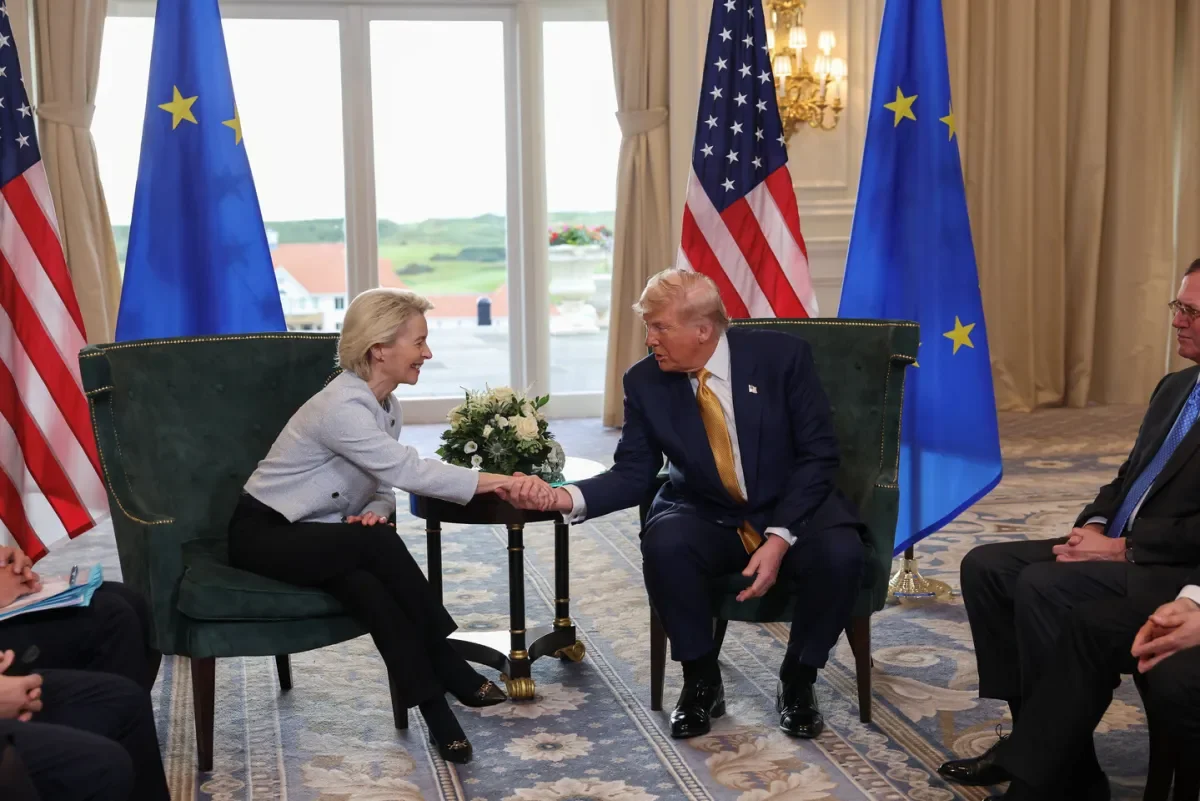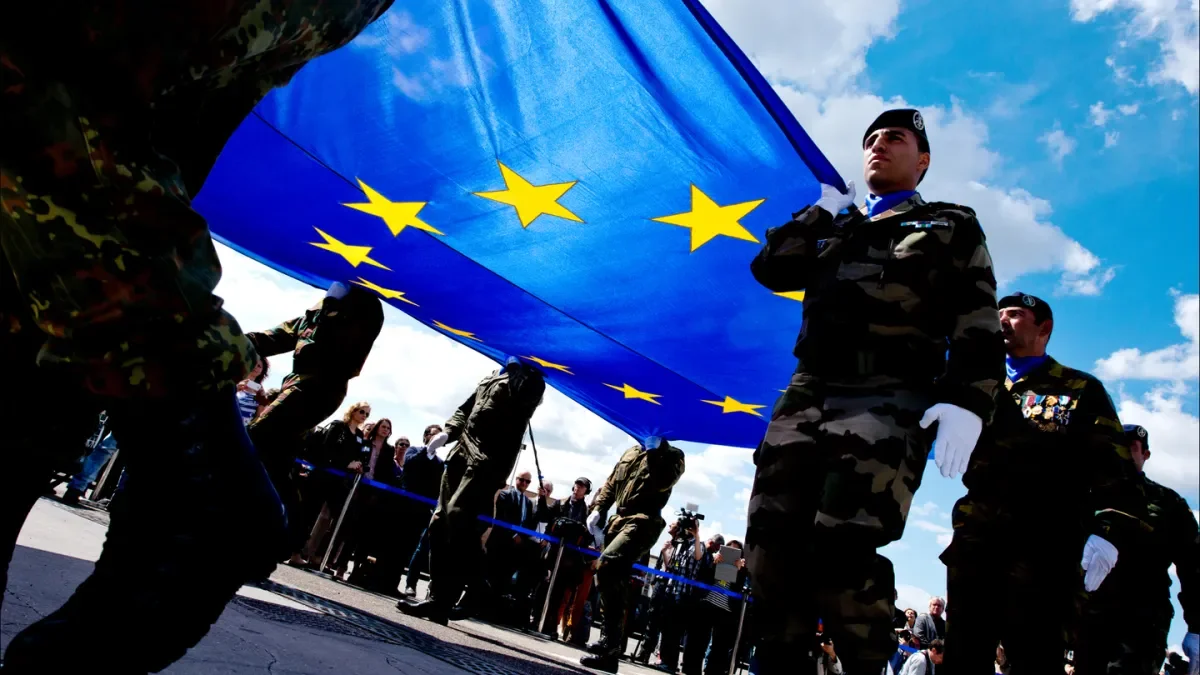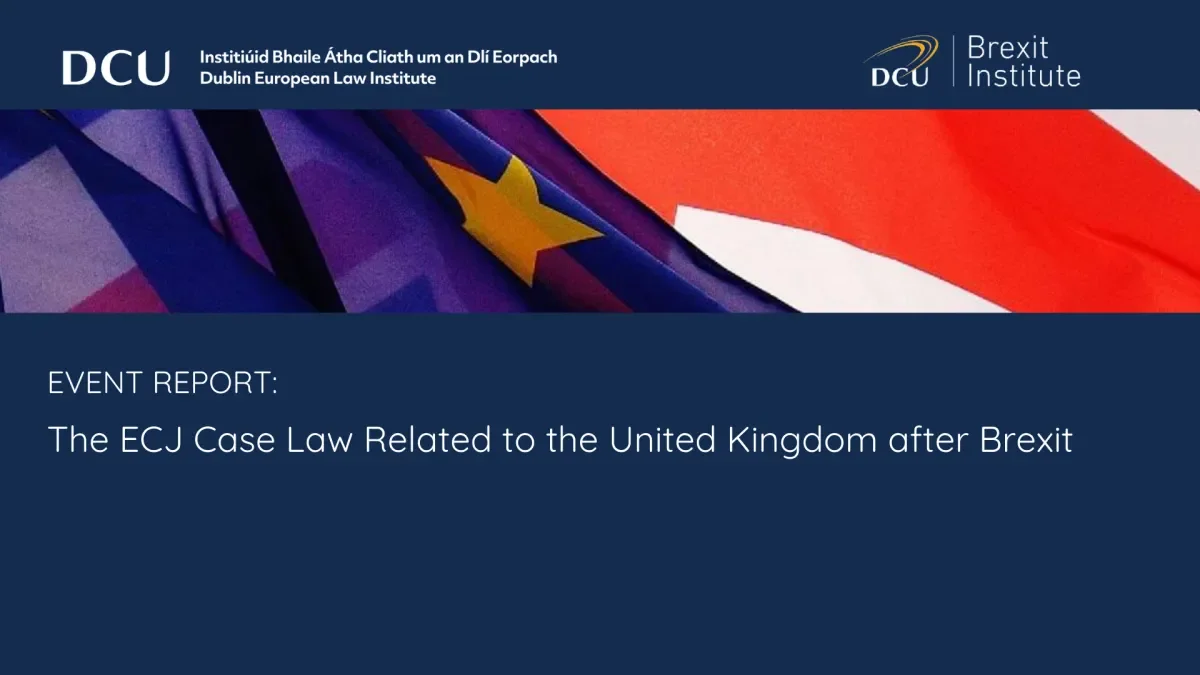
Pedro Antonio Vaquera (Dublin City University)
On 12 May 2025, the Dublin European Law Institute (DELI) and the DCU Brexit Institute hosted their inaugural Annual Lecture titled “ECJ Case Law and the United Kingdom after Brexit.” The event brought Prof. Andrea Biondi, Advocate General for Italy at the European Court of Justice to assess the evolving legal relationship between the UK and the EU in the post-Brexit era.
The event was opened by Dr. Tanya Ní Mhuirthile, Head of the School of Law and Government at DCU, who welcomed participants and underscored the importance of continued legal dialogue in light of the shifting European landscape. This was followed by remarks from Prof. Federico Fabbrini, Full Professor of EU Law and Founding Director of both the Brexit Institute and DELI, who introduced the lecture's theme and emphasised the continuing relevance of European Court of Justice (ECJ) jurisprudence, even after the UK's formal withdrawal from the EU.
The keynote lecture was delivered by Prof. Andrea Biondi, Advocate General for Italy at the European Court of Justice, Professor of European Law, and Director of the Centre of European Law at King's College London. Prof. Biondi offered a thought-provoking analysis of the lingering impact of ECJ case law on the UK’s legal system, noting that while the UK is no longer an EU Member State and no longer under ECJ jurisdiction, legal and institutional entanglements persist, particularly through the Withdrawal Agreement and the Trade and Cooperation Agreement (TCA).
He noted that although EU law formally does not apply in the UK, and the ECJ lacks jurisdiction over UK domestic matters, there are contexts where EU law may indirectly reassert relevance. A recent case C-413/24 (Vlaams Gewest), initiated by a Belgian court, raises the question of whether Article 1.9.1 of the TCA, which grants market access, may have direct effect - a matter now pending before the ECJ. Prof. Biondi also pointed to the erosion of one of EU law’s foundational principles: mutual trust between member states. With Brexit, this trust has dissipated between the UK and EU, as evidenced in judicial interactions including a Northern Irish case C‑202/24 (Minister for Justice and Equality v MA) that sparked debate over human rights compliance and the application of the EU Charter.
Moreover, Prof. Biondi reflected on recent ECJ jurisprudence that draws a clear line between the UK and the EU, with courts reaffirming that while the UK is no longer a member, it is also not an entirely foreign entity. Unlike Norway, which participates in the EEA and aligns closely with EU regulatory frameworks, the UK’s cooperation under the TCA lacks the depth of mutual trust or legal harmonization. Still, he argued that the UK occupies a unique position - it is not just another third country, and the level of judicial cooperation must evolve into a new, differentiated form of trust.
In his conclusion, Prof. Biondi expressed cautious optimism for future legal dialogue. The energy sector was identified as a key area where EU–UK collaboration could deepen, noting that the TCA offers a structural basis for this. He raised the rhetorical question of whether the ECJ could truly abstain from jurisdiction in cross-border energy matters between the UK and EU Member States highlighting the example of Switzerland, which participates in the EU energy market while complying with relevant EU law. He also acknowledged the significant influence of the UK’s common law tradition on the ECJ’s approach, particularly in the realm of remedies. Among ongoing legal controversies, he referenced the Lipton case, touching on national implementation of the TCA and debates around the principle of direct effect.
The event concluded with a Q&A session that explored these and other legal intricacies, affirming the continuing relevance of ECJ case law in shaping the future of UK–EU legal interaction. The Annual Lecture highlighted the necessity for sustained scholarship and legal engagement in this evolving space and underscored the enduring complexity of disentangling British and European legal orders.
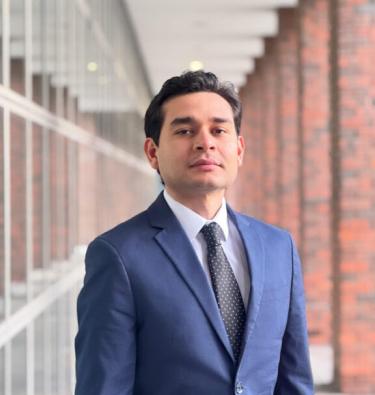
Pedro Antonio Vaquera is a stagiaire at the DCU Brexit Institute and the Dublin European Law Institute (DELI). He is currently pursuing the European Master in Law, Data and Artificial Intelligence (EMILDAI) at Dublin City University.

